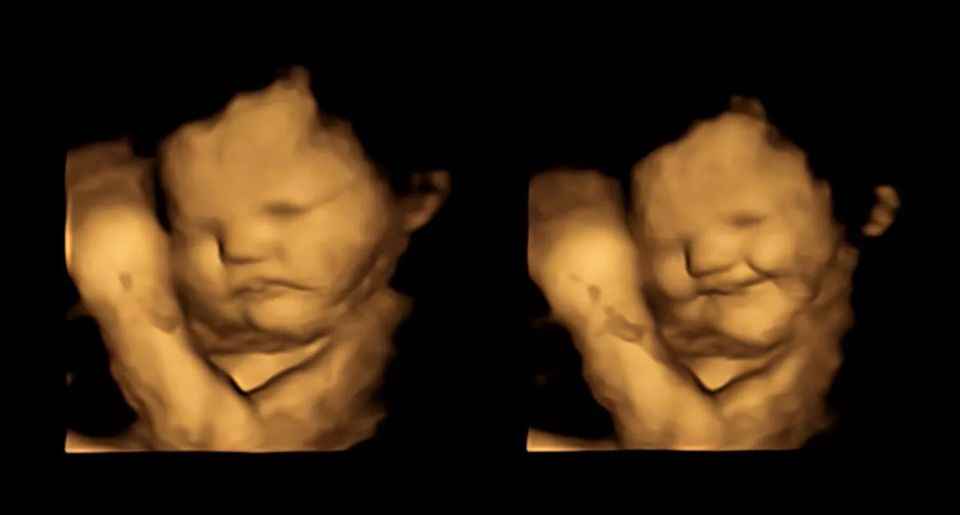study shows
Babies react to taste in the womb
© lordn / Adobe Stock
A new study shows how babies respond to their mother’s eating habits while they are still in their bodies. How was that found out? Researchers at Durham University in England used 4D ultrasound scans to examine the facial expressions that unborn babies showed when faced with different foods.
The study, conducted by Beyza Ustun and his team at Durham University in England, involved nearly 100 women who were 32 weeks pregnant. Using the ultrasound, the researchers observed the different movements of the fetuses in the abdomen. The examination was repeated in 81 women in the 36th week of pregnancy.
Babies’ taste preferences
It has been scientifically proven that fetuses absorb a lot of their later environment even in the womb. Sounds and voices and even light stimuli that they perceive through the abdominal wall. So they are later familiar with the voices of their parents. But it’s not just the eyes and ears that get a lot, the sense of smell and taste also develops quite early. Through flavorings that are dissolved in the amniotic fluid, fetuses indirectly taste their own mother’s food. It is not for nothing that pregnant women are advised to watch their diet and eat a balanced diet. So the fetuses taste and are able to respond to the flavors in the amniotic fluid found in the mother’s food.

Fetuses with neutral (left) and smiling (right) faces.
© FETAP (Fetal Taste Preferences Study)/ Fetal and Neonatal Research Lab, Durham University
What’s amusing about it: Depending on what the mother ate, the unborn babies in the study reacted with different facial expressions. As part of the study, the pregnant women swallowed either a capsule with carrot powder or a capsule with kale powder. 20 minutes later, the facial expression of the fetus was observed in the 4D ultrasound.
The result: carrot yes, kale no
The different capsules also elicited different responses: “Fetuses exposed to the carrot flavor were more likely to present a laughing face, while fetuses exposed to the kale flavor were more likely to present a crying face,” the researchers reported.
Unborn babies get a lot more than they thought
According to Nadja Reissland, who accompanied the study in Ustun’s team, this result is also an indication that unborn children already notice a lot more than was long assumed. In previous research, Reissland had already found that fetuses are even responsive to the mother’s mental state – and it appears that the same is true of the mother’s diet.
More Studies
The research team is already working on a follow-up study that will examine how prenatal imprinting of taste preferences is reflected later. For this purpose, the same babies take part after their birth, and it is examined whether and to what extent the aromas known from the stomach later influence the acceptance of a wide variety of foods or even develop initial preferences. So what if this assumption were to be confirmed? It would support the recommendation that pregnant women should eat as balanced and varied a diet as possible. This is the only way for the fetuses in the womb to get to know the most diverse flavors – and perhaps even get used to them in the process.
Sources used: wissenschaft.de, durham.ac.uk, study journals.sagepub.com
This article originally appeared on PARENTS.
